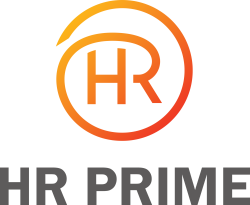A recent tribunal case has explored the question of accountability – who is responsible for decisions made, when advice is provided by consultants? This is something we are often conscious of when advising clients, to ensure we adhere to professional boundaries, and decision-making responsibilities.
In this particular case (Handa v The Station Hotel (Newcastle) clarity is provided around the responsibilities of consultants in decision making processes.
Mr Handa was a director of The Station Hotel, and alleged various whistleblowing concerns regarding financial mismanagement. He was later subject to a number of grievances by staff members, claiming that he was responsible for bullying and harassment.
An external HR consultant was appointed to investigate the grievances, and they recommended a disciplinary hearing. A second external HR consultant was then appointed to chair the hearing, from which Handa was dismissed for gross misconduct. It was reported that the employer relied on a report from the second HR consultant when deciding to dismiss. This report stated that the employer would be justified in dismissing Handa, although they did not explicitly recommend it.
The Tribunal
In the tribunal hearing, Handa bought claims against multiple respondents, including the former employer, and both HR consultants separately – raising the question of whether they could be liable for the employer’s decision. The tribunal struck out the claims against the consultants, but Handa appealed to the Employment Appeal Tribunal (EAT).
The tribunal considered various factors –
• Could the consultants be considered agents of the employer? The tribunal ruled that they were agents of The Station Hotel, having been appointed to carry out disciplinary and grievance processes
• What was the scope of their liability as agents? Handa did not make allegations that the consultants had made the decision to dismiss him. Both HR consultants had made it clear that dismissal decisions were not in their remit, and they had not made such decisions. The employer relied upon their processes to dismiss; however, it was clear they did not make the decision, and the decision letter was signed by The Station Hotel.
One key factor in the case was that the HR consultants made recommendations, not decisions, with regards to potential next steps. The employer made the decision.
Handa’s case failed to set out a legal and factual basis for the consultants’ alleged liability. Had he done so, a different conclusion could have been reached.
Learnings from the Case
The case highlights the importance of boundaries between HR consultants (or any other professional consultants) being determined with employers, to ensure that the employer is aware of their responsibilities in terms of decision making. It also highlights the need to ensure that any consultants are appropriately qualified, experienced, and selected to support the business.
Support
This case, along with ensuring the boundaries of third parties, also highlights the need to ensure that managers and decision makers are appropriately trained, and understand their responsibilities when holding disciplinaries, grievances, or other formal meetings. If you would like to discuss managers training, please contact us on team@hrprime.co.uk.



